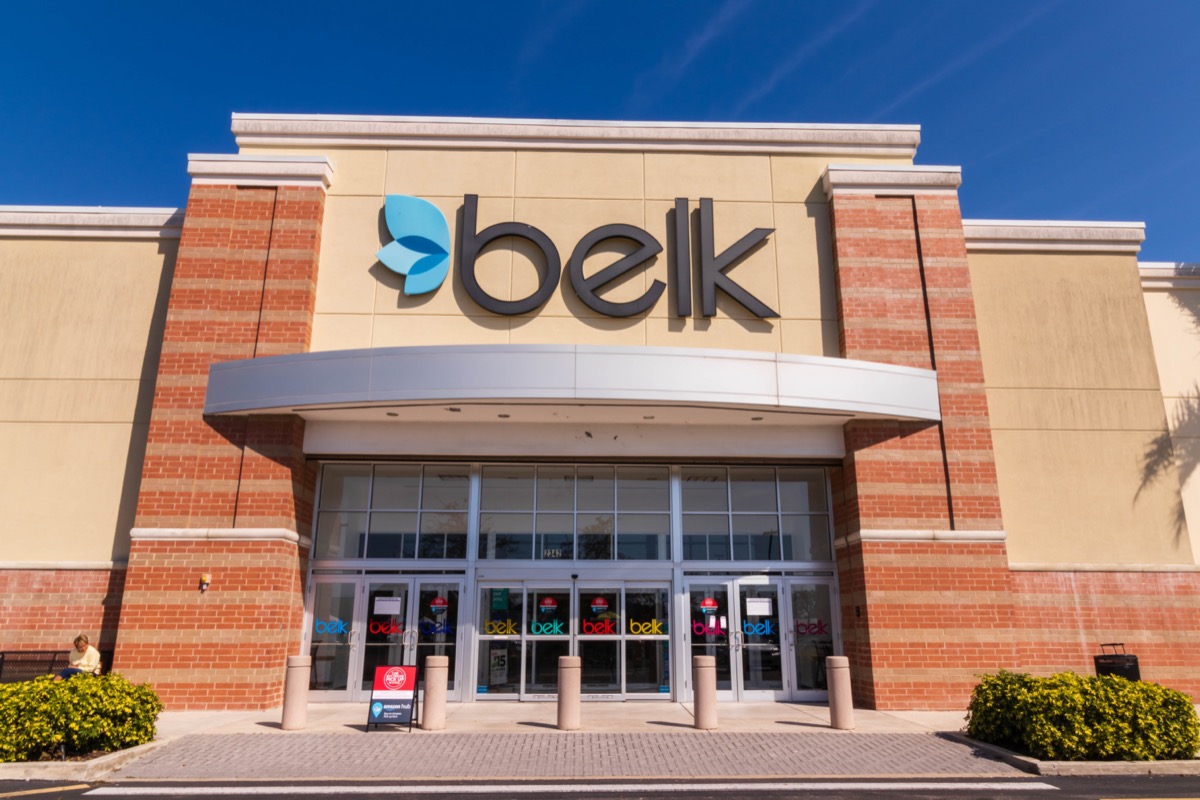Over the last year, similar department store chains including Neiman Marcus, JCPenney, and Lord & Taylor have all filed for bankruptcy, a sign of how tough conditions have been. For the full story of Belk’s problems and what this means for the brand, read on. And for another store that’s sadly going away, check out This Beloved Store Is Closing All Its U.S. Locations. Belk was founded in 1888 by William Henry Belk using a $750 investment and $500 loan to open his first store in Monroe, North Carolina. It was originally called The New York Racket, but once Belk brought his brother into the business, they began trading under the family name. By 1943, the Belk name was on 195 stores across the South. And for another department store that’s suffering, check out This Popular Department Store Is Closing All Its Locations. Three generations of the Belk family had owned the department store chain until 2015. At that point, Tim, McKay, and John R. Belk sold the business for $3 billion to Sycamore Partners, a private equity firm based in New York City. A period of renewal followed with the company hiring Lisa Harper as the first female (and non-Belk) CEO and investing $70 million over two years, beginning in 2017, to refresh existing stores and open new ones aimed at appealing to younger customers. And for more retail news sent right to your inbox, sign up for our daily newsletter.ae0fcc31ae342fd3a1346ebb1f342fcb However, the sale also loaded Belk with over $2 billion in debt just as department stores and malls began to fall out of favor with an increasing number of sales moving online. Belk also thusly began to struggle to support its more than 20,000 employees spread across 300 stores in 16 states, with an additional 1,300 staff at its corporate headquarters in Charlotte, North Carolina. With the outbreak of the COVID-19 pandemic, employees have been furloughed en masse, while senior members of the team have had their pay cut by up to 50 percent. Eighty corporate roles had already been eliminated in Feb. 2020, with more job losses following in July. According to a July 2020 report in the New York Post, Sycamore Partners had initially planned to merge Belk with JCPenney, which filed for bankruptcy in May. Those plans seemingly fell through and by October, Forbes was reporting that many Belk vendors said they were not being paid in a timely manner, if at all. And for another store that’s suffering, check out This Popular Clothing Store Is Closing at Least 200 Locations. Sycamore Partners announced in a news release on Jan. 26 that it had entered into a Restructuring Support Agreement (RSA) with Belk that will see the store file for Chapter 11 bankruptcy. The statement stressed that Belk will continue “normal operations” through the process, with Sycamore expecting Belk to exit bankruptcy by the end of February. The Charlotte Observer reports that this will shed Belk of about $450 million in debt and will avoid any further job losses or store closures. “We’re confident that this agreement puts us on the right long-term path toward significantly reducing our debt and providing us with greater financial flexibility to meet our obligations and to continue investing in our business,” Harper, Belk’s CEO, said in a statement via USA Today. And for more companies in the same spot, check out This Beloved Brand Just Filed for Bankruptcy.
